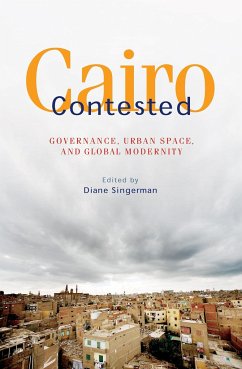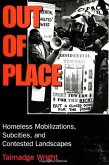This cross-disciplinary, ethnographic, contextualized, and empirical volume explores the meaning and significance of urban space, and maps the spatial inscription of power on the mega-city of Cairo. Suspicious of collective life and averse to power-sharing, Egyptian governance structures weaken but do not stop the public's role in the remaking of their city. What happens to a city where neo-liberalism has scaled back public services and encouraged the privatization of public goods, while the vast majority cannot afford the effects of such policies? Who wins and loses in the "march to the modern and the global" as the government transforms urban spaces and markets in the name of growth, security, tourism, and modernity? How do Cairenes struggle with an ambiguous and vulnerable legal and bureaucratic environment when legality is a privilege affordable only to the few or the connected? This companion volume to Cairo Cosmopolitan (2006) further develops the central insights of the Cairo School of Urban Studies. Contributors: Khaled Adham, Jennifer Bell, Agnès Deboulet, Taline Djerdjerian, W.J. Dorman, Bénédicte Florin, Jörg Gertel, Katarzyna Grabska, Patrick Haenni, Kareem Ibrahim, Samia Mehrez, Sarah Ben Néfissa, Agnieszka Paczynska, Samuli Schielke, Mulki Al-Sharmani, Diane Singerman, Hania Sobhy, Malika Zeghal.
Hinweis: Dieser Artikel kann nur an eine deutsche Lieferadresse ausgeliefert werden.
Hinweis: Dieser Artikel kann nur an eine deutsche Lieferadresse ausgeliefert werden.








